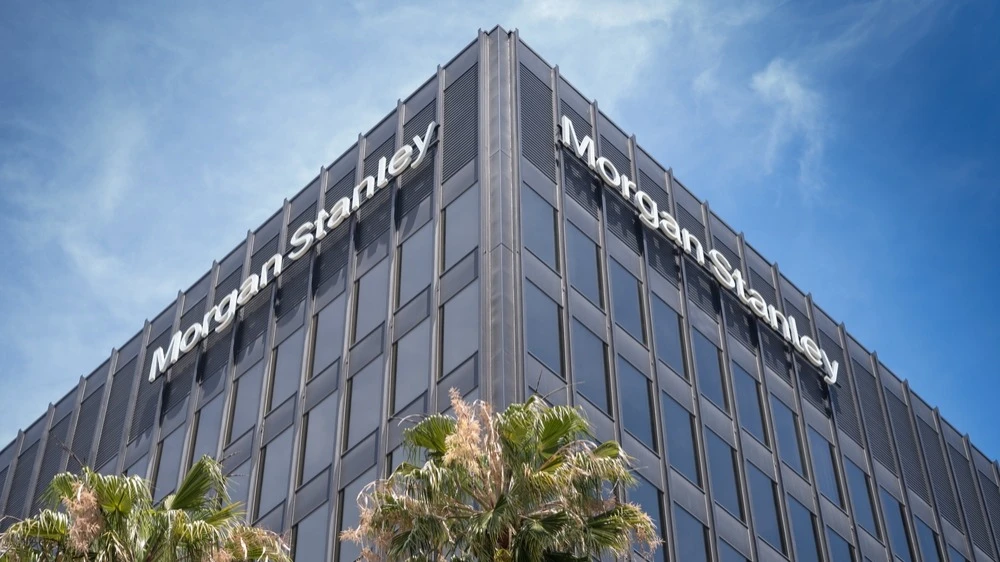Morgan Stanley expects $1.1 trillion in AI revenue in 2028. Why isn't it afraid of a bubble?
The bank believes the current wave of AI investment is part of a long-term earnings growth cycle

Investment bank Morgan Stanley has predicted that global revenue from artificial intelligence software will reach $1.1 trillion by 2028. The bank considers the current cycle of AI spending to be just the beginning of a major investment phase: the impressive scale of investment that has sparked talk of a bubble should not alarm investors, the bank says.
Details
"We believe the sustainability of the current investment cycle ultimately depends on whether AI can generate stable cash flows that provide a return on significant invested capital," Katie Huberty, global director of research at Morgan Stanley, wrote in an Oct. 13 note to investors. Business Insider wrote about it. The analyst noted that many investments will pay off by 2028, when total revenue from AI software will reach $1.1 trillion.
Morgan Stanley's forecast implies that the current wave of AI investment is part of a long-term earnings growth cycle, rather than the speculative bubble that some market participants fear, Business Insider explains. Huberty's team believes that the AI boom will continue to drive growth for those companies that are actively investing in the technology now.
What other analysts are saying
Analysts at Morningstar believe that massive capital spending on AI at companies like Amazon, Microsoft and Alphabet could eventually put pressure on their stock prices, writes Business Insider.
It's too early to worry about a bubble in soaring US tech stocks, Goldman Sachs strategist Peter Oppenheimer said. "Technology sector valuations are getting strained but have not yet reached levels consistent with historical bubbles," he said.
The Bank of England, in a report on financial stability, has named high valuations of AI-related companies as one of the factors that could increase the risk of a sharp correction in financial markets. According to the regulator, stock markets look overvalued and AI technology companies are most vulnerable - especially if expectations about the impact of the technology prove to be overstated. The regulator emphasized that there are serious constraints on the path of AI development that could negatively impact company valuations. Among the risks, he cited possible shortages of energy, data and raw materials, as well as technological breakthroughs that could change the requirements for AI infrastructure.
The surge in investment in artificial intelligence is fueling a good bubble, not a bad one, Amazon founder Jeff Bezos believes. "It's more of an industry bubble than a financial bubble," he noted. He cited the 2008 mortgage market crash as an example of a bad bubble. Bezos noted that even if the AI bubble bursts and stocks collapse like they did after the dot-com crash 25 years ago, AI will still leave society with long-term benefits. At the same event, Goldman Sachs CEO David Solomon warned that much of the capital going into AI "will not yield returns." However, he admitted that it is not yet clear whether the technology market is in a bubble.
"At some point, the reality check will begin. I would not be surprised if equity markets face a correction in the next 12-24 months. Its magnitude will depend on how long this rally lasts," Solomon emphasized. In the end, he said, the AI boom will "benefit some and lose others."
In August, Sam Altman, CEO of ChatGPT startup OpenAI, said that the AI market had inflated into a bubble like the dot-com crisis. Back then, he said, people were "overly enthusiastic" about the idea of the Internet and technology and enthusiastically invested in Internet companies that failed in the 2000s. "Are we now at a stage where investors in general are overly enthusiastic about AI? In my opinion, yes. Is AI the most important development in a very long time? In my opinion, also yes," Altman added.
The boom in data center construction for AI development is quite different from the dot-com bubble of the early 2000s and appears much more sustainable, said a team of Bank of America analysts led by Vivek Arya. It recognized "some risk of overbuilding infrastructure," as estimating future capacity needs remains difficult. However, funds are now being allocated more rationally and the market looks more balanced, the analysts said. Analysts see the main risk not in the overheating of the market, but in the escalation of the trade confrontation between the U.S. and China over the supply of rare earth metals critical for the production of chips.
This article was AI-translated and verified by a human editor
